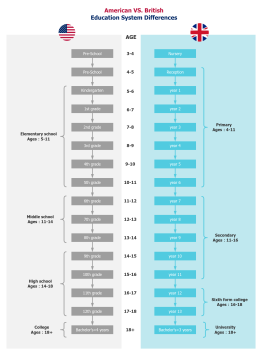
Timeline of the American Revolution | Causes, Battles & Facts
0 Report
This mind map provides an insightful overview of the 'Timeline of the American Revolution,' covering its causes, major battles, and significant post-revolution events. Beginning with the Proclamation of 1763, it highlights key colonial grievances such as the Sugar Act, Stamp Act, and Townshend Acts, which fueled growing discontent. The mind map details pivotal events like the Boston Massacre and Boston Tea Party, leading to the outbreak of war at Lexington and Concord. It traces major battles, including Saratoga and Yorktown, and concludes with the Treaty of Paris and the establishment of the U.S. Constitution, marking the birth of a new nation.
Related Recommendations
Other works by the author
Outline/Content
See more
Causes of the American Revolution (1763–1775)
1763 – The Proclamation of 1763
Issued by King George III to prevent colonial expansion beyond the Appalachian Mountains.
Angered colonists who wanted to settle in newly acquired lands from the French and Indian War.
1764 – The Sugar Act
Imposed duties on sugar, molasses, and other goods to raise revenue for Britain.
Led to widespread smuggling and resentment in the colonies.
1765 – The Stamp Act
Required colonists to purchase special stamped paper for legal documents, newspapers, and playing cards.
Met with violent protests, boycotts, and the formation of the Sons of Liberty.
Repealed in 1766 due to colonial resistance, but Britain maintained its right to tax the colonies.
1767 – The Townshend Acts
Imposed new taxes on imports like glass, paper, lead, paint, and tea.
Colonists responded with non-importation agreements and resistance, leading to British military presence in Boston.
1770 – The Boston Massacre (March 5)
British soldiers fired on a crowd of protesting colonists, killing five people.
Used as propaganda to fuel anti-British sentiment.
1773 – The Boston Tea Party (December 16)
In response to the Tea Act, the Sons of Liberty, dressed as Mohawk Indians, dumped 342 chests of British tea into Boston Harbor.
One of the most famous acts of colonial resistance.
1774 – The Intolerable Acts
A series of punitive laws passed by Britain to punish Massachusetts for the Boston Tea Party.
Included the Boston Port Act (closing the port), the Massachusetts Government Act (limiting self-rule), and the Quartering Act (housing British soldiers in colonial homes).
Led to the First Continental Congress in September 1774, where colonies united in resistance.
1775 – Battles of Lexington and Concord (April 19)
First armed conflict of the revolution.
British troops attempted to seize colonial weapons; local militias responded, forcing the British to retreat to Boston.
Major Battles and Events of the American Revolution (1775–1783)
1775 – Battle of Bunker Hill (June 17)
British forces attacked colonial positions near Boston.
Although the British won, they suffered heavy losses, proving the colonial army’s resilience.
1776 – Declaration of Independence
January – Thomas Paine’s *Common Sense* published, calling for independence from Britain.
July 4 – Declaration of Independence signed in Philadelphia, officially severing ties with Britain.
1776 – Battle of Long Island (August 27–29)
British forces defeated Washington’s army, forcing them to retreat across the Hudson River.
One of the largest battles of the war.
1776 – Battle of Trenton (December 26)
Washington crossed the Delaware River in a surprise attack against Hessian forces.
Boosted American morale and revitalized the war effort.
1777 – Battle of Saratoga (September–October)
Major American victory over British General Burgoyne.
Persuaded France to officially ally with the American cause, providing military and financial support.
1777–1778 – Winter at Valley Forge
Washington’s army endured a harsh winter in Pennsylvania.
Despite suffering from cold, hunger, and disease, the army emerged better trained under Baron von Steuben.
1780 – Benedict Arnold’s Treason
American General Benedict Arnold attempted to surrender West Point to the British.
His plot was exposed, and he defected to the British side.
1781 – Battle of Yorktown (September–October)
American and French forces, led by Washington and Rochambeau, trapped British General Cornwallis at Yorktown, Virginia.
Cornwallis surrendered on October 19, marking the effective end of the war.
Post-Revolution Events
1783 – Treaty of Paris signed (September 3)
Britain formally recognized American independence.
Established the borders of the new United States.
1787 – The U.S. Constitution Drafted
In response to weaknesses in the Articles of Confederation, delegates met in Philadelphia to draft a new governing document.
Established a strong federal government with checks and balances.
1789 – George Washington Becomes First President
Washington was unanimously elected as the first U.S. president under the new Constitution.

0 Comments
Next Page







